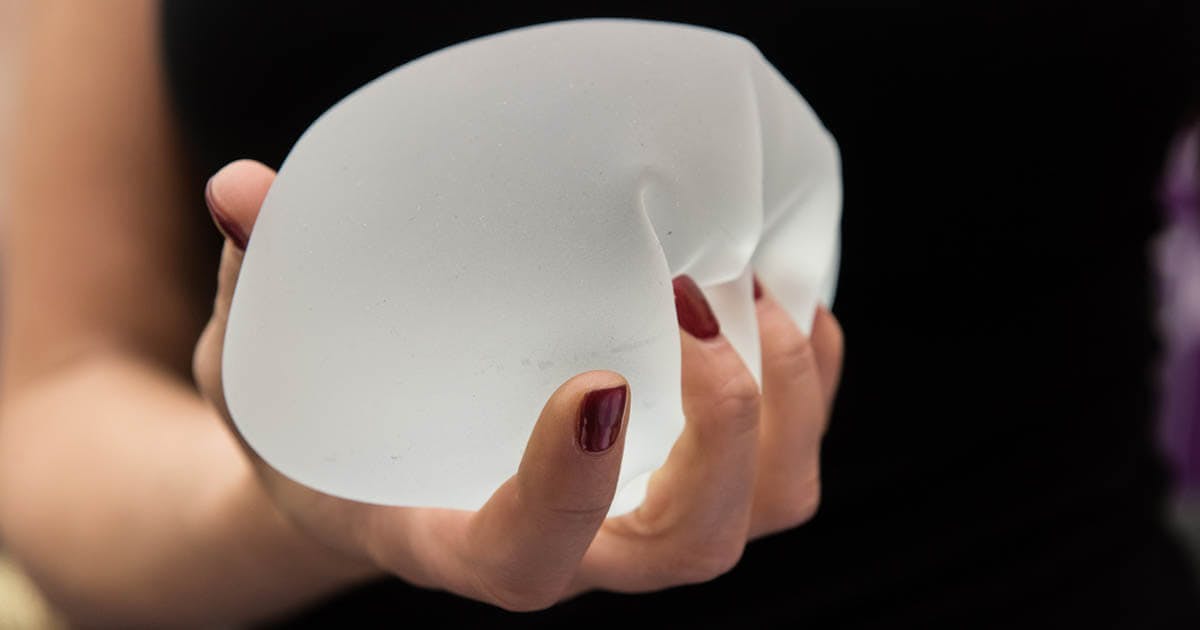These mystery ailments are common symptoms of breast implant poisoning. Whether it's the fault of the manufacturers, doctors, or regulatory bodies, the dangerous truth here is that vital information about this condition is kept from patients and endangers life. When it comes to implants, patients are rarely made aware that these devices might contain toxic chemicals and metals. Even in small quantities, these toxins can prove life-altering, and due to the invasive nature of breast implant procedures, it's fairly easy for them to leak into the body. What's more? These toxins which often evade FDA-approval processes can also be linked to autoimmune illness and cancer.
So, how can women protect themselves when their health and safety isn’t being prioritized? Efforts to raise awareness of breast implant illness are only beginning, and social media is playing a major role in the widespread effectiveness. More than 170 pages and groups on Facebook are related to breast implant illness — some with more than 70,000 members.
“Ladies have been fighting this since the 90s,” says Jamee Cook, founder of the Breast Implant Victim Advocacy group on Facebook.
“I wish that they had had the social media outlets that we have now because maybe we wouldn’t be rehashing the same situations. You have women all over the world that are telling you the same stories, suffering the same symptoms, all fighting regulatory bodies.”
Cook spoke at the FDA advisory panel hearing in March and has high hopes that regulations will improve. Here, she and two others affected by breast implant illness shared their stories in hopes that, if major legislative powers won’t take action, at least a seed would be planted in the minds of women who would consequently raise their own questions.

➕
As Cook stepped out of the shower one morning, she looked down to find her left breast almost completely flat. She knew what had happened: After 14 years, her textured saline implant had ruptured.
“I just cried,” Cook says. “I knew there wasn’t anything I could do.”
At the time, she couldn’t afford replacement surgery, and three years passed before she had them removed. Now, Cook sees that waiting period as a blessing in disguise. Had she been able to replace the implant right away, she wouldn’t have done the research to find that the ruptured implant had not been approved by the FDA and was linked to complications her doctor hadn’t mentioned.
The rupture wasn’t the first cause for concern. About three years after implant, Cook developed an autoimmune disease, chronic fatigue and brain fog. The rupture then led to arm and hand numbness and recurrent migraines. But once the implant was removed, most of these symptoms disappeared immediately.
➕
In 2012, there were days Carla Perkins couldn’t raise her hands over her head. Her body felt like it was burning, her joints ached, she was chronically fatigued — and she didn’t know why. When she looks back now, she notices these symptoms appeared within two years of getting smooth saline breast implants.
Physical symptoms aren't the end of it, however. Breast implants may also impact cognition. In fact, the cognitive effects of breast implant illness can be even worse than the physical - affecting relationships, jobs, and the ability to lead a normal life.
When Perkins first started experiencing brain fog, her surroundings felt completely foreign. She was barely able to move and didn’t want to interact with anyone, which can be especially difficult when you have a son with an intellectual disability. The illness from the breast implants had seeped into every area of her life, but doctors never made the connection and continued to tell her these symptoms were autoimmune-related.
In 2018, seven years after undergoing breast augmentation surgery, some unusual test results from her gynecologist alerted Perkins that it was time to explant. She felt a difference the moment she woke up from the surgery. The brain fog had lifted, and she was able to stop taking some of the medication she had relied on for years.
Then, within seven months of her explant surgery, Perkins was diagnosed with breast cancer.
Weeks later, her fatigue is apparent even through the phone. At the time of this interview, Perkins was to undergo a lumpectomy the following week and possibly need radiation after that. While none of her doctors have explicitly linked the breast cancer to having had breast implants, Perkins has read about cases eerily similar to hers through postings in advocacy groups.

➕
For 11 years, Meredith Kilmer was certain her breast implants were the cause of her inability to sleep, shortness of breath, night sweats, weight loss then weight gain, muscle tenderness, and extreme fatigue. She even started to notice some of these same symptoms in her two children that were born after she’d been implanted — both pregnancies had also been almost unbearable, the opposite of her two pregnancies pre-implant.
Her doctors denied any correlation and blamed the symptoms on slow C-section healing and being a mom. They recommended therapists and asked about the health of her marriage, but they wouldn’t remove the implants.
Finally, a cardiologist she was seeing to treat her newly occurring seizure spells asked if she thought her ailments could be linked to her breast implants.
“The second he said that I literally had the energy to sit up and say, ‘Yes, I do. What can you tell me?’” Kilmer says.
Within a month she had her implants removed. Almost immediately, she felt the energy return to her body, the stiffness melted away — she could breathe again. Then 28 days later, Kilmer was diagnosed with a rare form of leukemia and given a 20% chance to live.
Because she had immersed herself in research regarding her breast implants, she used this knowledge to maintain a strict diet and rest regimen while undergoing full-body chemo and radiation. Now five years out, she is cured. She fully believes the acquired knowledge and explant surgery are what saved her.
“The information is out there, we’re just not made privy to it,” Kilmer says. “If I hadn’t removed the implants, I wouldn’t be alive today.”
➕
When asked if they would’ve gotten implanted had they known the risks involved, all three women respond with the same: Absolutely not.
The majority of women affected by this illness would probably have a similar answer. Every patient deserves the right to make an informed decision. Until further action is taken, women will continue to push the FDA for better regulation, urge doctors to pay closer attention, and demand that manufacturers tell the truth.
For more information, visit www.breastimplantillness.com.

